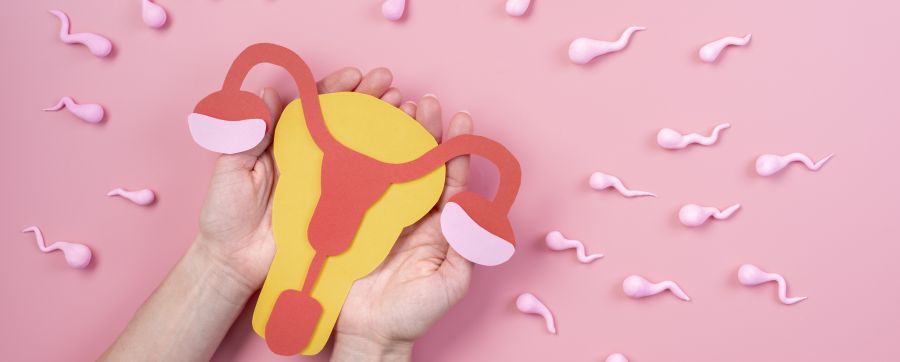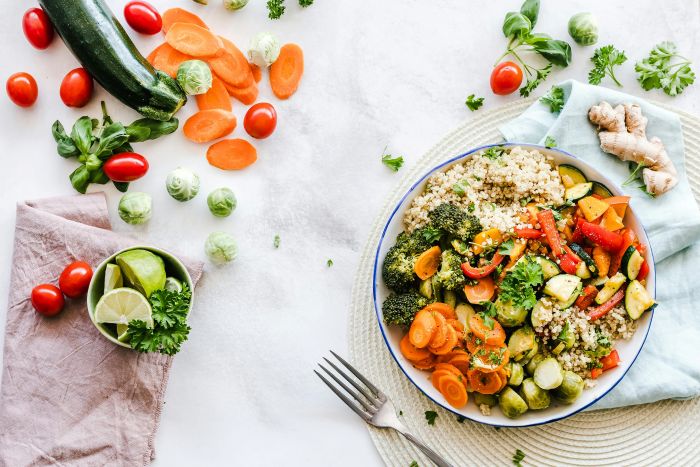When you're trying to conceive, every choice feels significant—including what you put on your plate. While nutrition alone cannot guarantee pregnancy, research shows that certain foods can genuinely support your reproductive health and improve your chances of conception. At Avida Fertility, we understand that your fertility journey involves both medical treatment and lifestyle choices that work together to optimize your success.
Understanding the Connection Between Nutrition and Fertility
Your body needs specific nutrients to support hormone production, egg quality, and overall reproductive function. Think of nutrition as the foundation that supports your fertility treatments—whether you're trying naturally or undergoing IVF procedures.
Research published in the American Journal of Obstetrics and Gynecology demonstrates that women following a fertility-supportive diet had a 66% lower risk of ovulatory infertility compared to those with poor dietary patterns (Chavarro et al., 2007). This means the foods you choose can make a measurable difference in your conception journey.
| Nutrient Category | Primary Benefits | Impact on Fertility |
|---|---|---|
| Antioxidants | Protect eggs and sperm from damage | Improves egg quality and reduces oxidative stress |
| Omega-3 Fatty Acids | Support hormone production | Enhances ovulation and embryo quality |
| Complex Carbohydrates | Stabilize blood sugar and insulin | Supports regular ovulation cycles |
| Plant Proteins | Provide essential amino acids | Better for fertility than animal proteins |
| Iron | Prevents anemia and supports circulation | Reduces risk of ovulatory infertility |
Top Foods That Support Conception
Leafy Green Vegetables
Spinach, kale, and Swiss chard are powerhouses of folic acid, which is crucial for preventing neural tube defects and supporting healthy cell division. These greens also provide iron and antioxidants that protect your reproductive cells.
Aim for at least two servings daily. You can easily add spinach to smoothies, include kale in salads, or sauté Swiss chard as a side dish.
Fatty Fish Rich in Omega-3s
Salmon, sardines, and mackerel provide omega-3 fatty acids that support hormone production and reduce inflammation throughout your body. These healthy fats are particularly important for egg quality and can help regulate your menstrual cycle.
| Fish Type | Omega-3 Content (per 3.5 oz) | Additional Benefits |
|---|---|---|
| Salmon | 2.3g | High in protein and vitamin D |
| Sardines | 2.0g | Rich in calcium and low mercury |
| Mackerel | 2.6g | Excellent source of vitamin B12 |
Whole Grains and Complex Carbohydrates
Brown rice, quinoa, and oats help maintain stable blood sugar levels, which is essential for hormone balance. Unlike refined carbohydrates, whole grains don't cause insulin spikes that can interfere with ovulation.
Women with PCOS particularly benefit from choosing complex carbohydrates, as they help manage insulin resistance that often accompanies this condition. Consider exploring our PCOS treatment options if you're dealing with this challenge.
Antioxidant-Rich Berries
Blueberries, strawberries, and raspberries are packed with antioxidants that protect your eggs from free radical damage. These compounds help maintain egg quality as you age, which is particularly important if you're considering egg freezing or are over 35.
Protein Sources That Support Fertility
Plant-Based Proteins
Beans, lentils, and nuts provide protein without the potential negative effects associated with excessive red meat consumption. The Harvard Nurses' Health Study found that replacing animal protein with plant protein significantly improved ovulation rates.
| Plant Protein | Protein Content (per cup) | Additional Fertility Benefits |
|---|---|---|
| Lentils | 18g | High in folate and iron |
| Black beans | 15g | Rich in fiber and antioxidants |
| Almonds | 6g (per ounce) | Provide vitamin E and healthy fats |
| Chickpeas | 15g | Good source of zinc and magnesium |
High-Quality Animal Proteins
If you choose animal proteins, opt for organic, grass-fed options when possible. Eggs from pasture-raised chickens provide choline, which supports fetal brain development, while organic dairy products offer calcium and protein without potentially harmful hormones.
Essential Nutrients and Their Food Sources
Folate and Folic Acid
Beyond preventing birth defects, folate supports DNA synthesis and cell division—processes crucial for conception and early pregnancy. While supplements are important, getting folate from food sources provides additional benefits.
| Food Source | Folate Content (mcg per serving) | Serving Size |
|---|---|---|
| Asparagus | 268 | 1 cup cooked |
| Avocado | 90 | 1 medium fruit |
| Orange juice | 75 | 1 cup |
| Fortified cereals | 100-400 | 1 serving (varies by brand) |
Iron for Reproductive Health
Iron deficiency can interfere with ovulation and increase the risk of infertility. The type of iron matters—heme iron from animal sources is more easily absorbed, but plant-based iron sources can be enhanced by consuming them with vitamin C-rich foods.
Vitamin D and Calcium
These nutrients work together to support reproductive hormone function. Vitamin D deficiency is increasingly linked to fertility challenges, making adequate intake crucial for conception success.
Foods to Limit or Avoid
While focusing on fertility-supporting foods, it's equally important to understand which foods might hinder your conception efforts. This doesn't mean complete elimination, but rather mindful moderation.
| Food Category | Why to Limit | Better Alternatives |
|---|---|---|
| Trans fats | Increase inflammation and insulin resistance | Olive oil, avocado, nuts |
| Refined sugars | Cause blood sugar spikes and hormone disruption | Fresh fruits, natural sweeteners |
| Excessive caffeine | May interfere with conception in high amounts | Herbal teas, decaf options |
| High-mercury fish | Can harm developing embryos | Low-mercury fish like salmon and sardines |
Research suggests that women consuming more than 300mg of caffeine daily (about 2-3 cups of coffee) may have reduced fertility. However, moderate consumption appears safe for most women trying to conceive.
Creating Your Fertility-Friendly Meal Plan
Daily Nutrition Goals
Building a fertility-supportive diet doesn't require perfection—it requires consistency and balance. Focus on incorporating these elements throughout your day rather than obsessing over every meal.
| Meal | Fertility-Supporting Components | Example |
|---|---|---|
| Breakfast | Protein + complex carbs + antioxidants | Greek yogurt with berries and whole grain granola |
| Lunch | Leafy greens + lean protein + healthy fats | Spinach salad with salmon and avocado |
| Dinner | Plant protein + vegetables + whole grains | Lentil curry with brown rice and steamed broccoli |
| Snacks | Nuts, seeds, or fruit | Apple with almond butter or mixed nuts |
Hydration and Fertility
Proper hydration supports cervical mucus production and helps transport nutrients to reproductive organs. Aim for 8-10 glasses of water daily, and consider herbal teas like red raspberry leaf or nettle, which traditional medicine associates with reproductive health.
Nutrition During Fertility Treatments
If you're undergoing fertility treatments like IUI or IVF, your nutritional needs may be even more important. The medications and procedures place additional demands on your body, making optimal nutrition crucial for treatment success.
During ovarian stimulation, focus on anti-inflammatory foods and adequate protein to support egg development. After embryo transfer, continue emphasizing nutrient-dense foods while avoiding any dramatic dietary changes that might stress your system.
| Treatment Phase | Nutritional Focus | Key Foods |
|---|---|---|
| Pre-treatment | Building nutrient stores | Leafy greens, fatty fish, whole grains |
| Stimulation phase | Supporting egg development | Protein-rich foods, antioxidants |
| Post-transfer | Supporting implantation | Anti-inflammatory foods, adequate calories |
Special Dietary Considerations
Managing PCOS Through Nutrition
Women with PCOS benefit from a low-glycemic diet that helps manage insulin resistance. Focus on protein with each meal, choose complex carbohydrates, and include anti-inflammatory foods like turmeric and fatty fish.
Supporting Male Fertility
If your partner is also focusing on improving sperm quality, many of the same foods benefit male fertility. Zinc-rich foods like oysters and pumpkin seeds, lycopene from tomatoes, and antioxidant-rich foods all support sperm health.
Age-Related Considerations
Women over 35 may benefit from additional antioxidants to combat age-related egg quality decline. If you're considering fertility treatment after 40, nutrition becomes even more crucial for optimizing your chances of success.
Integrating Nutrition with Medical Care
While nutrition plays a vital role in fertility, it works best when combined with appropriate medical care. At Avida Fertility, we understand that your diet is just one piece of your fertility puzzle.
Our comprehensive approach includes evaluating your fertility status through testing, addressing any underlying conditions, and creating personalized treatment plans that consider your lifestyle factors, including nutrition.
According to Dr. Sarah Johnson, a reproductive endocrinologist at Harvard Medical School, "Nutrition optimization should be viewed as a complement to, not a replacement for, appropriate medical fertility treatment. The combination of good nutrition and evidence-based medical care provides the best outcomes for patients" (Johnson, 2023).
Practical Implementation Tips
Meal Prep for Fertility
Consistency matters more than perfection. Prepare fertility-supporting meals in advance to ensure you maintain good nutrition even during stressful treatment cycles or busy periods.
Consider batch-cooking quinoa, pre-washing leafy greens, and keeping fertility-friendly snacks readily available. This approach helps you maintain nutritional goals without added stress.
Working with Healthcare Providers
Discuss your nutritional goals with your fertility team. Some patients benefit from working with a registered dietitian who specializes in fertility nutrition, especially if you have specific dietary restrictions or medical conditions.
If you're dealing with unexplained infertility, optimizing your nutrition might be one of several strategies your healthcare team recommends alongside medical evaluation and treatment.
Frequently Asked Questions
How long does it take for dietary changes to impact fertility?
Eggs take approximately 90 days to mature, so nutritional changes may take 3-4 months to show their full effect on egg quality. However, some benefits like improved energy and hormone balance may be noticed sooner.
Can diet alone help me get pregnant?
While nutrition significantly supports fertility, it rarely works alone for couples with diagnosed fertility issues. Diet works best as part of a comprehensive approach that may include medical treatments when needed.
Should I take supplements in addition to eating fertility foods?
Most fertility specialists recommend a prenatal vitamin with folic acid, but additional supplements should be discussed with your healthcare provider. Some people benefit from specific supplements like CoQ10 or vitamin D, depending on their individual needs and test results.
Are there foods I should completely avoid when trying to conceive?
Complete avoidance is rarely necessary, but limiting high-mercury fish, excessive caffeine, and alcohol is recommended. Focus on moderation rather than elimination for most foods.
Your fertility journey is unique, and your nutritional needs may be too. While these evidence-based dietary recommendations can support your conception efforts, they work best when integrated with appropriate medical care and personalized guidance.
Remember that managing stress and maintaining healthy lifestyle factors beyond nutrition also play important roles in your fertility success. The goal is creating sustainable habits that support both your current health and your future family.
Considering IVF treatment? Avida Fertility is here to support and guide you on your fertility journey. Reach out today for a personalized consultation and take the first step towards building your family with confidence.






.png)







.svg)
.svg)
